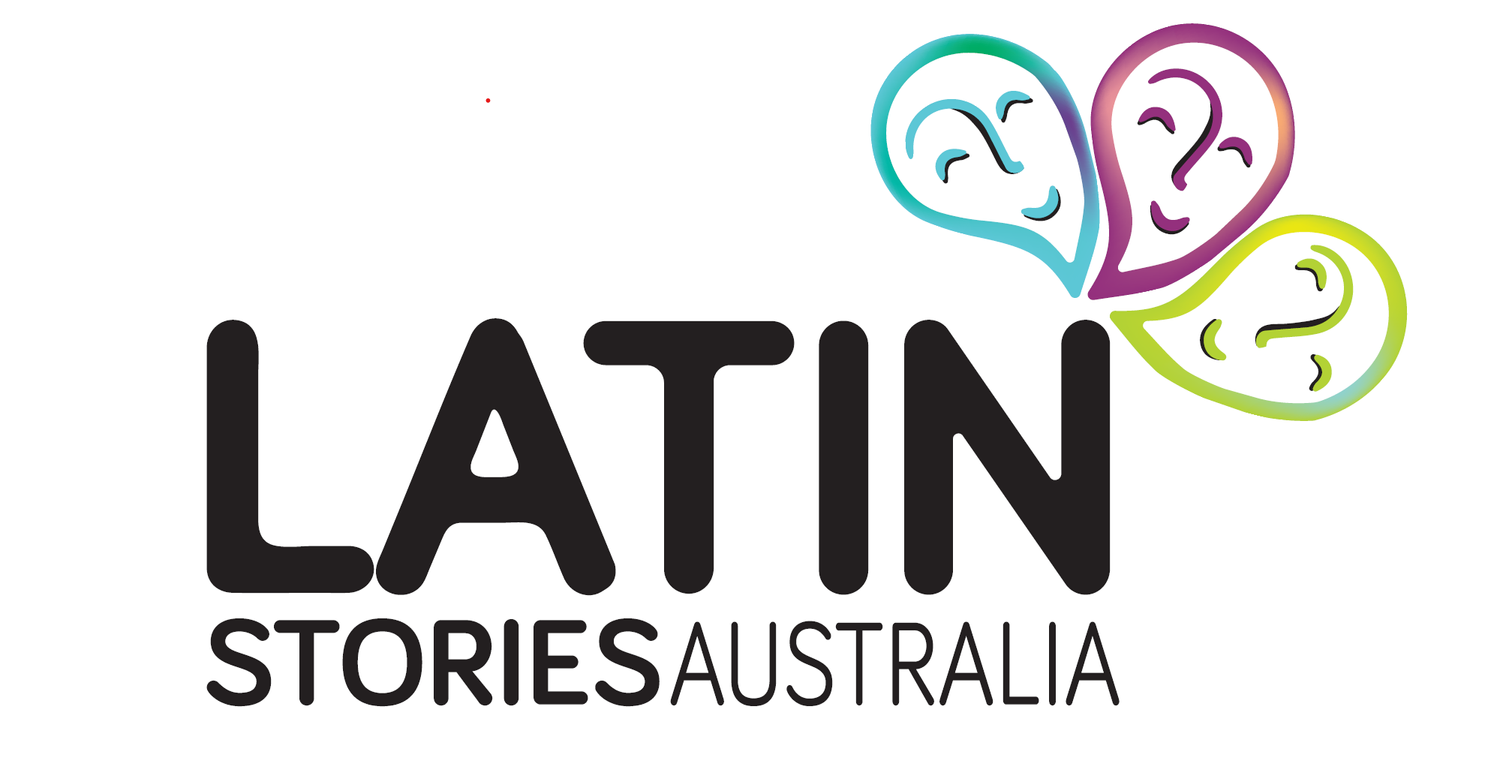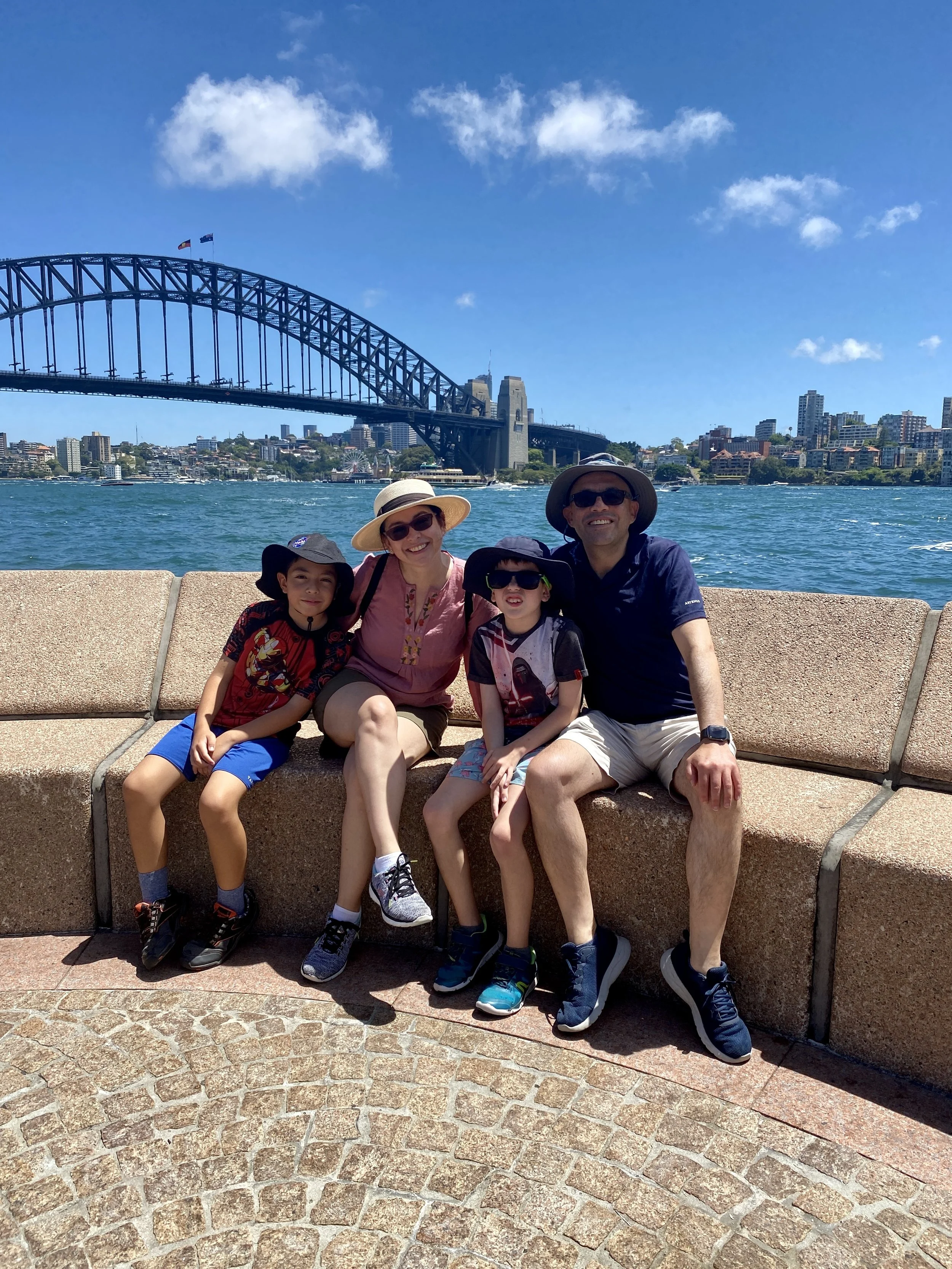Juan Camilo Reyes
Juan Camilo Reyes
Country of origin: Colombia
Occupation: Manager of Energy Security Policy and Preparedness at DEECA
State of Residency: Victoria
Favourite place in Australia: Sydney Harbour
Thoughts upon arrival: Surprised how beautiful it is, and to find pine trees on the beach instead of palm trees.
Story edited by Lucy Coulson and Cristina Abela
Juan Camilo is a mechanical engineer with a Master in International Business (Honours) from the University of Sydney and a Master in Energy Systems from the University of Melbourne. Juan works for Victoria’s Department of Energy, Environment and Climate Action (DEECA), where he manages the team responsible for the reliable and secure supply of electricity, gas and liquid fuels in Victoria for the short and medium term. He is part of the emergency management roster supporting the energy cell during supply disruptions. Juan Camilo is also on the Board of Directors of Horizons Projects with the Community (horizonspwc.org), advising on the organisation’s mission to deliver actions and projects that generate skills, care and support for people and groups in vulnerable environments.
TELL US YOUR STORY
I first came from Colombia to Sydney in 2000 to study a Master of International Business at The University of Sydney. I chose Australia at the time because I had heard about the academic level and quality of life from a family member who was contacted to lecture at ANU (and didn’t go). I also thought choosing such a faraway place was a great idea even though I didn’t know anybody there: if I didn’t go, I would never do it.
While I was doing my Masters, I went to an agency that got me a part-time job in a government library, which covered most of my education costs. I was also lucky to find a shared room at the International House of Sydney Uni, where I got to share daily with over 200 people from 40 countries. I was elected in 2001 to be the Chairperson of the International House Members Association, which also gave me the opportunity to engage with the broader university community. At the end of that year, I received the Howard and Diane Cook Award for representing the ideals of the International House.
I returned to Colombia at the end of 2001 and very quickly realised that I wanted to go back to Australia, so I validated my engineering degree with Engineers Australia in preparation for a visa application. I also started working and growing professionally, first in ExxonMobil, where I reached management and international advisory roles, and then at Ecopetrol, where I worked on large infrastructure downstream projects in oil and gas. This progression and my marriage shifted my focus for over 10 years, but when my second son was born in 2013, I convinced my wife that we should apply for permanent residence, which was granted in 2014.
My wife, four-year-old and two-year-old sons moved definitively to Australia at the end of 2015, packing 12 bags, quitting our jobs and selling everything. We arrived in Adelaide, where we had an acquaintance from my university in Colombia. She and her partner became our friends and were very supportive through our transition.
At this new stage, I first worked with a friend in Sydney with his startup, which delivers accommodation for international students, but after a while, I realised that I wanted to return to work in the energy sector. I started looking for jobs but didn’t know people in that space, so we decided to move to Melbourne, where I enrolled in the Master of Energy Systems program at the University of Melbourne. Thanks to my performance, the master’s Director recommended me for the Product Development and Customer Care Manager role in an Energy Retailer startup, delivering an innovative approach to virtual power plants.
From that role, I moved into the Department of Energy, Environment and Climate Action (DEECA, previously DELWP) as Senior Policy Officer, where I worked on energy reliability which led me to obtain my current role as Manager of Energy Security Policy and Preparedness.
I am really proud of my role in supporting the reliability of energy supply for Victorians, where I lead a diverse team of amazing professionals who are passionate about the energy transition to ensure the lights stay on and gas is available in critical moments of the year as the energy system transitions to a cleaner and digitised one. I am also a member of the energy emergency roster and have been activated during major supply emergencies in the past 4 years.
CHALLENGES
Lack of network in my area of expertise - I overcame it by doing a master's in my field of interest, participating in relevant events and contacting professionals on LinkedIn.
Adjusting to Australia - The transition was most challenging for my wife as she came here with no English, but her focus on building on her strengths and surrounding herself with people who complement her has made her a reference for the Latin American community in Victoria (you can find a link to her organisation in www.horizonspwc.org).
Friendships - . At first, you are open to meeting people from all walks of life, but it is harder to find people who share values and worldviews. The way we have overcome it is by making the effort to spend time with people who you feel more comfortable with, which is not easy with small children and as you are starting a new life.
Juan Camilo at a Horizons event with the Latino community in Melbourne
CONTRASTS AND SIMILARITIES –
Family ties - Our experience with Australians is that they tend to be more independent and distant from their close relatives. This independence often leads to prioritizing personal goals and careers over frequent family gatherings, which contrasts with cultures where family is more central to daily life.
Expressiveness - Colombians tend to be much more expressive of their feelings, especially affection. This expressiveness is often seen in frequent hugs, kisses, and openly sharing emotions, creating a warm and lively atmosphere in social interactions. However Australians are very friendly in their own way.
Respectful - Australians are more respectful of others, their time, and personal space. They often value boundaries and clear communication, ensuring interactions are polite and considerate of everyone's individual needs.
PIECE OF ADVICE
Learn English before coming to Australia - Dedicate as much time and effort as possible to it in your country of origin – it will be cheaper. If you plan to study in Australia, study something you are passionate about which will help you with your English and job prospects. Also, please understand that student agencies are biased; their profits depend on a commission from the educational institutions with which they have agreements. Agencies are not free; you just pay in a way that can be very inconvenient for you.
Work in what you are passionate about - Even if that means starting your career from scratch. Also, build a network of like-minded people, have coffees with them periodically and join events related to your field of interest; many of those are free!
Seek help and , share your fears with friends - Please don’t keep your problems to yourself. There are people and organisations that can help and provide valuable advice and can be found using a simple google search.
Juan Camilo his wife Carolina and their kids at Sydney
IN THE NEXT FEW YEARS
I see myself working with the government on energy security policy and strategy at the state or national level. I would also like to provide mentoring to Latin American professionals who want to find work and grow in government roles.
---------------------------
Connect on Linkedin with Juan Reyes , Instagram: @juancreyesh or Twitter @juancreyes
Life lessons contain powerful knowledge only unveiled through reflection, we invite you to take a moment to reflect after reading this story.
We invite you to support our work for the community with a tax deductible donation or by joining our volunteer group.
With love and gratitude - Latin Stories Australia team




